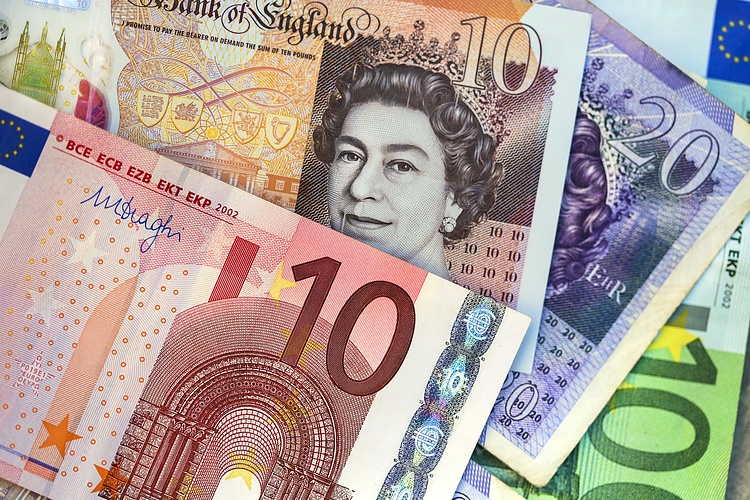- EUR/GBP softens to around 0.8355 in Thursday’s early European session.
- The ECB is widely anticipated to reduce interest rates by 25 bps at its upcoming meeting on Thursday.
- Slowing inflation in the UK has boosted the BOE cut bets.
The EUR/GBP cross trades on a weaker note around 0.8355 during the early European session on Thursday. The rising expectation that the European Central Bank (ECB) will lower interest rates again on Thursday undermines the shared currency against the Pound Sterling (GBP).
The ECB is expected to cut the deposit rate by another quarter-point to 3.25% at its October meeting on Thursday after data showed that the rapid retreat in inflation is being accompanied by a deteriorating economy. Paul Hollingsworth, chief economist for Europe at BNP Paribas, noted that the ECB shifted its focus from too-high inflation to too-weak growth, adding that “it makes perfect sense to accelerate the pace of easing, even if high uncertainty still calls for some caution.”
Traders will take more cues from the press conference after the interest rate decision. Any dovish comments from the ECB Christine Lagarde could exert some selling pressure on the Euro (EUR).
On the other hand, the UK inflation eased sharply in September, spurring rate cut bets by the Bank of England (BoE) in the November meeting. This, in turn, could weigh on the GBP and cap the downside for EUR/GBP. The annual Consumer Price Index (CPI) inflation eased to 1.7% in September from 2.2% in August, the lowest reading since April 2021, the Office for National Statistics revealed. The UK Retail Sales data will be published on Friday. However, if the report shows a surprise upside outcome, this could provide some support to the GBP in the near term.
ECB FAQs
The European Central Bank (ECB) in Frankfurt, Germany, is the reserve bank for the Eurozone. The ECB sets interest rates and manages monetary policy for the region. The ECB primary mandate is to maintain price stability, which means keeping inflation at around 2%. Its primary tool for achieving this is by raising or lowering interest rates. Relatively high interest rates will usually result in a stronger Euro and vice versa. The ECB Governing Council makes monetary policy decisions at meetings held eight times a year. Decisions are made by heads of the Eurozone national banks and six permanent members, including the President of the ECB, Christine Lagarde.
In extreme situations, the European Central Bank can enact a policy tool called Quantitative Easing. QE is the process by which the ECB prints Euros and uses them to buy assets – usually government or corporate bonds – from banks and other financial institutions. QE usually results in a weaker Euro. QE is a last resort when simply lowering interest rates is unlikely to achieve the objective of price stability. The ECB used it during the Great Financial Crisis in 2009-11, in 2015 when inflation remained stubbornly low, as well as during the covid pandemic.
Quantitative tightening (QT) is the reverse of QE. It is undertaken after QE when an economic recovery is underway and inflation starts rising. Whilst in QE the European Central Bank (ECB) purchases government and corporate bonds from financial institutions to provide them with liquidity, in QT the ECB stops buying more bonds, and stops reinvesting the principal maturing on the bonds it already holds. It is usually positive (or bullish) for the Euro.
Read the full article here

